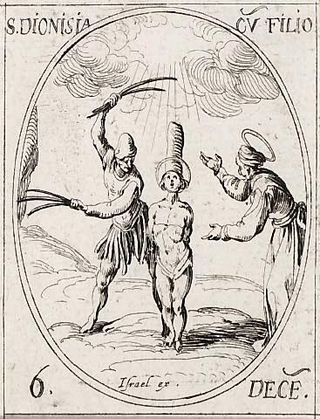Related Research Articles

Year 253 (CCLIII) was a common year starting on Saturday of the Julian calendar. At the time, it was known as the Year of the Consulship of Volusianus and Claudius. The denomination 253 for this year has been used since the early medieval period, when the Anno Domini calendar era became the prevalent method in Europe for naming years.
The 250s was a decade that ran from January 1, 250, to December 31, 259.
This article concerns the period 159 BC – 150 BC.

Terni is a city in the southern portion of the region of Umbria, in Central Italy. It is near the border with Lazio. The city is the capital of the province of Terni, located in the plain of the River Nera. It is 104 kilometres northeast of Rome and 81 km south of the regional capital, Perugia.

Marcus Aemilius Aemilianus, also known as Aemilian, was Roman emperor for three months in 253.
Lucius Aemilius Paullus Macedonicus was a two-time consul of the Roman Republic and general, who conquered Macedon in the Third Macedonian War.

Lucius Aemilius Paullus, also spelled Paulus, was a consul of the Roman Republic twice, in 219 and 216 BC. He is primarily remembered for being one of the commanders of the Roman army at the Battle of Cannae, and for his death in the same battle.

Publius Cornelius Scipio Africanus Aemilianus, known as Scipio Aemilianus or Scipio Africanus the Younger, was a Roman general and statesman noted for his military exploits in the Third Punic War against Carthage and during the Numantine War in Spain. He oversaw the final defeat and destruction of the city of Carthage. He was a prominent patron of writers and philosophers, the most famous of whom was the Greek historian Polybius. In politics, he opposed the populist reform program of his murdered brother-in-law, Tiberius Gracchus.

The gens Aemilia, originally written Aimilia, was one of the greatest patrician families at ancient Rome. The gens was of great antiquity, and claimed descent from Numa Pompilius, the second King of Rome. Its members held the highest offices of the state, from the early decades of the Republic to imperial times. The Aemilii were almost certainly one of the gentes maiores, the most important of the patrician families. Their name was associated with three major roads, an administrative region of Italy, and the Basilica Aemilia at Rome.

The province of Terni is the smaller of the two provinces in the Umbria region of Italy, comprising one-third of both the area and population of the region. Its capital is the city of Terni. The province came into being in 1927, when it was carved out of the original unitary province of Umbria.
Cornelia was the daughter of Scribonia and her second husband. She was stepdaughter to Octavian through her mother's third marriage and half-sister to Julia the Elder, Augustus' only biological child.
Quintus Fabius Maximus Allobrogicus, was a Roman statesman and general who was elected consul in 121 BC. During his consulship he fought against the Arverni and the Allobroges whom he defeated in 120 BC. He was awarded a triumph and the agnomen Allobrogicus for his victory over the Gauls.
Quintus Fabius Maximus Aemilianus was a Roman statesman and consul.
Aemilia Tertia, properly Aemilia, was the wife of Scipio Africanus.

The Pons Aemilius is the oldest Roman stone bridge in Rome. Preceded by a wooden version, it was rebuilt in stone in the 2nd century BC. It once spanned the Tiber, connecting the Forum Boarium, the Roman cattle market, on the east with Trastevere on the west. A single arch in mid-river is all that remains today, lending the bridge its name Ponte Rotto.
Aemilianus was Roman emperor for three months in 253.

Saint Aemilianus lived in the 5th century AD, and is known as a physician, confessor, and martyr. In the reign of the Arian Vandal King Huneric, he became emmired in the Arian persecution in Africa. When he resisted conversion to Arianism, he was put to death by being flayed alive.
Marcus Aemilius Paullus was a Roman statesman and general during the middle era of the Roman Republic. He was one of the consuls of 255 BCE, serving with Servius Fulvius Paetinius Nobilior. As consul Paullus led the Republic's forces in the ongoing First Punic War against Carthage; he and Paetinus led a Roman fleet of 350 warships to Africa to rescue the remnants of the army of proconsul Marcus Atilius Regelus, who had been defeated in the Battle of the Bagradas River earlier that year. Onroute they defeated a Carthaginian fleet of 200 warships in the Battle of Cape Hermaeum.